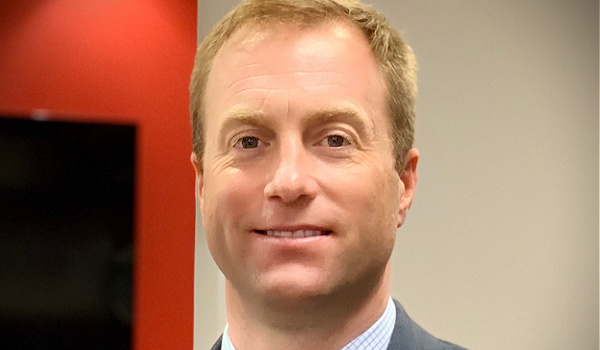Sarson Funds, Inc.
John Sarson, CEO and co-founder of Sarson Funds, first started thinking about bitcoin as an investment opportunity in 2015. At the time, he was managing his own RIA firm focused on ETFs and low-cost trend-following investments. He and his team wanted to include bitcoin as a non-correlated source of returns in the trend-following portfolio. They were surprised to learn that the technology was essentially unknown in sophisticated investment circles.
“I was working in Manhattan and Greenwich, and many analysts and investment professionals knew nothing about this technology. These people were supposed to be the smartest in financial services, and bitcoin was clearly financial services. That was when I decided to take a hard turn and become an advisor to advisors in the crypto category,” John said.
Sarson Funds has since grown to employ more than a dozen people across its dual headquarters of Indianapolis and Boston.
Institutional Adoption
Over the past week, the cryptocurrency industry has experienced a one-two punch: one, Capitol Hill’s so-called crypto tax which places a target on the backs of blockchain developers and miners, and two, the $600 million hack — most of which has since been returned — on the DeFi platform Poly Network.
Nonetheless, the bitcoin price has been resilient, rallying toward the $50K level once again. The public’s desire to own cryptocurrency has made it increasingly rewarding to offer crypto investment portfolios. Sarson Funds investment portfolios have been adding new investors every day, according to John, adding:
“There is plenty of evidence showing institutions herding into the crypto space. We have finally been able to point to some of the most sophisticated firms on Wall Street as a point of legitimacy for the strategies we have understood for quite some time now.”
Sarson Funds made it through both the infrastructure bill and the DeFi hack unscathed. Adding to the abundance of activity in the industry, recent legislation has broadened the reach of the reporting requirements for market participants. The team at Sarson Funds, as an RIA and Wall Street firm who knows and understands their clients well, were able to proactively communicate to those concerned that the rule does not negatively affect them. In contrast, in the wake of the DeFi hack in which different projects were exploited, Sarson’s investors were not as worried. John received just one text message about it.
“We’ve always been pro-regulation and are already complying with onerous securities regulations and standards that we are not yet expected to meet,” explained John.
The thing that does concern John however, is the fact that the new bill created regulation requirements for a portion of the industry which has been able to operate unencumbered until now.
“If you own ETH now and decide to take it on-chain, you will have to report who you are with a 1099 form. There is still a lot to figure out about compatibility between regulations and the way that crypto works,” said John.
“We put a bunch of best practices in place at Sarson which has helped us to avoid losing money from hacks. Our investment team and analysts put a lot of time and effort in researching every project in order make sure the project has reached critical mass or has aged for a specific amount of time before we consider it for investing our clients’ money into. We don’t know everything, but we know a lot,” said John.
The firm’s investment team, comprising nearly half-a-dozen experts, gives the firm a better chance of avoiding mistakes than a casual user of DeFi or crypto. None of Sarson’s funds were affected by the hack.
RIAs and Crypto
As an RIA, John knows and understands the market well and can see that the advisor segment is “pretty close” to crypto adoption. Most advisors are trying to find ways to gain crypto exposure for their clients these days.
“The reality is, there are not a lot of simple or elegant ways to do this,” said John.
He continued to provide an example of a bitcoin ETF. Even if it is eventually approved, the improvement would only be marginal because the bitcoin ETF is a passive product, not unlike many other funds available to institutions.
“Active management is extremely important when there is a new asset category which requires a high degree of specialization and has limited investor protections in place. An active manager not only has the resources available to research and understand the new asset category, but can also include investor protections in their management strategies. The only products currently available to RIAs are passive” John said.
According to John Sarson, people doing passive management are “taking on more risk than they realize” because “creative destruction is the nature of the beast in crypto.”
Just like Netscape was disrupted by Microsoft, bitcoin will be disrupted one day. He went on to say that buying bitcoin and putting it away for some time horizon will almost ensure that it will be worth nothing. Instead, Sarson has a process that helps people invest in digital assets generally and participate in the growth of digital assets more broadly, which helps to mitigate the risk of passive investment.
“Investors want to bet on the growth of digital assets rather than just buy one protocol. Passive products generally do not do a good job in providing that kind of investment exposure,” said John.
He went on to explain how it is difficult for active managers to achieve alpha when bitcoin is the best-performing asset in the market. Sarson Funds’ active management strategies involve diversifying across multiple protocols, not just bitcoin. Bitcoin and Ethereum combined are having good years, and so is Sarson.
“We’re doing great, our funds are doing awesome,” said John.
In Part Two of our interview with John Sarson, he talks about why he’s bullish on Ethereum. For a quick sneak preview — it has something to do with smart contracts.







